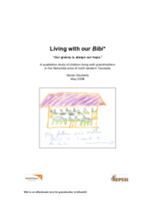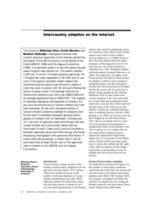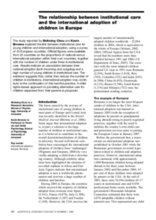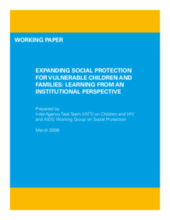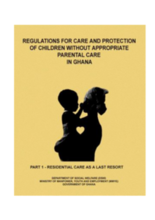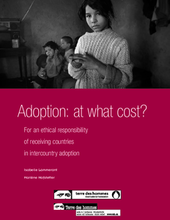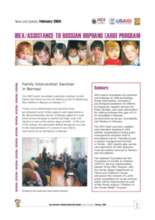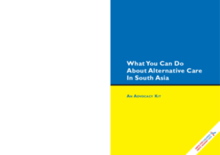Displaying 911 - 920 of 1028
A qualitative study of children living with grandmothers in the Nshamba area of northwestern Tanzania
Investigation of intercountry adoption agencies on the internet and their compliance with the UNCRC.
Explores causal relationship between increased international adoption and increase in institutional care of children in Europe.
Examines the institutional challenges in implementing national social protection programmes
These standards were drafted as part of a reform initiative programme in Ghana to ensure that institutional care is used as a last resort
A comparative study on the ethical responsibility of receiving countries of intercountry adoption.
Update on all recent seminars and activities relevant to child welfare reform and deinstitutionalization in Russia
International Social Service’s first segment of the series addresses the historical background and the principles and objectives of the Guidelines
Provides insight into the situation of children outside parental care in South Asia, gaps in legislation, capacity, and services, with reference to national and international legal instruments.
Examines the outcomes of family strengthening model in Uganda.

